Not sure which school model is best for your child?
Know your options and the difference in models to choose a good for your child.
The more you know…It is best to compare and research different school models way in advance to determine the best route for your child’s learning
Learning styles and school models go hand in hand
Along with the various learning styles of how children learn and the multiple intelligences, I think that discussing school models is just as important. Determining and comparing the main two educational models is helpful in finding the one that suits your child the best. My hopes in comparing and laying out the differences in the models would be that parents have enough information to make an informed decision on choosing what type of school is right for their child (ren). Although I am a Montessori trained professional, I support any and all educational settings that have the best interest of the child and their needs as their objective.
In one of my other posts, I shared about the different learning styles and intelligences and how children learn. According to psychologist Gardner, there are eight different learning styles. In case you missed it, you can read it here. Like I stated before, it is important to find out what type of learner your child is so that you can decide which type of school environment fits their learning style the best. There are two main educational models to choose from when selecting a school for your child.
In this post, I will break down and compare both of the most common educational paradigms so that you have a clear understanding of each type, and can make an informed decision when selecting a school for your child. This comparison is helpful when selecting a preschool, elementary school, middle school or high school. There are many choices that have become popular over the last ten years, and the different types of educational environments either supports one of the two models I will discuss or a sort of combination of the two. Each type has very distinct characteristics that set it apart from the other.
When I was younger there was one choice; public school. Many of the alternative schools that exist and that are popular today weren’t an option or even a possibility in the past. Now, parents have the choice to choose the educational environment that they feel is the best for their child.
Comparison of the two main educational models
1. Traditional Model:
Founded on the theory of Behaviorism
Example: Public school education
1. The student is viewed as the passive recipient of the transmission of knowledge. The learning environment is teacher centered and directed
2. A product oriented, linear curriculum: building block type of model; in which a foundation of information is built upon. Once information is presented, it is rarely revisited.
Focuses on:
*group orientation and instruction
*students are taken through a predetermined curriculum
*information is disseminated through lecture, reading of textbooks, rote memorization of abstract facts, testing the facts in a standardized manner, and evaluation is through a system of grading.
*subjects are offered as separate disciplines
*chronological grouping of students
Fosters:
*knowledge of basic skills: recall of facts and surface information, mechanical use of abstract operations
*a perspective of heteronomy: refers to action that is influenced by forces outside the individual
*an external locus of control
*dependence upon the authority figure
*convergent thinking (finding a single best solution to a problem)
*competitive organizational structure based on mutual respect
2. Alternative Model:
Founded on the theory of Constructivism
Example: Montessori Education
1. The student is viewed as an active participant in constructing knowledge. The learning environment is child led and directed.
2. A process oriented, non-linear curriculum: spiral type of model; in which knowledge areas are visited and revisited at higher and higher levels of difficulty and complexity.
Focuses on:
*individualized orientation and instruction
*the curriculum is developed to meet the needs of the students
*information is disseminated through demonstration, hand-on use of concrete materials, shared inquiry, child/teacher collaboration, portfolio assessment, and descriptive evaluation.
*subjects are offered as integrated disciplines
*multi-aged grouping of students
Fosters:
*an understanding of the process underlying learning, knowledge of basic skills: functional application, ability to access information,
problem solving, and critical thinking skills
*a perspective of autonomy: refers to action that is not influenced by forces outside the individual
*an internal locus of control
*independence and self-responsibility
*divergent thinking (finding a variety of possible solutions to a problem)
*cooperative organizational structure based on mutual respect
Things to consider
It is important to take many factors into consideration when selecting a school environment for your child. Their individual learning style, the philosophy of the school, the academic structure of the school and compatibility with your personal learning goals for your child should all be considered.
As stated above, an example of the traditional model is public school education and an example of the alternative model is Montessori education or other academic/philosophical based schools. An example of a mixture of the traditional and alternative models is a charter school. Many charter schools offer a blend of traditional classes as well as home school or independent study. There are so many choices to choose from, and it is important that each parent and family do diligent research and determine what is the right fit for their child(ren) and family.
Do you have a clear choice on which school model you think would be ideal for your child? Share it in the comments!
Anitra J.
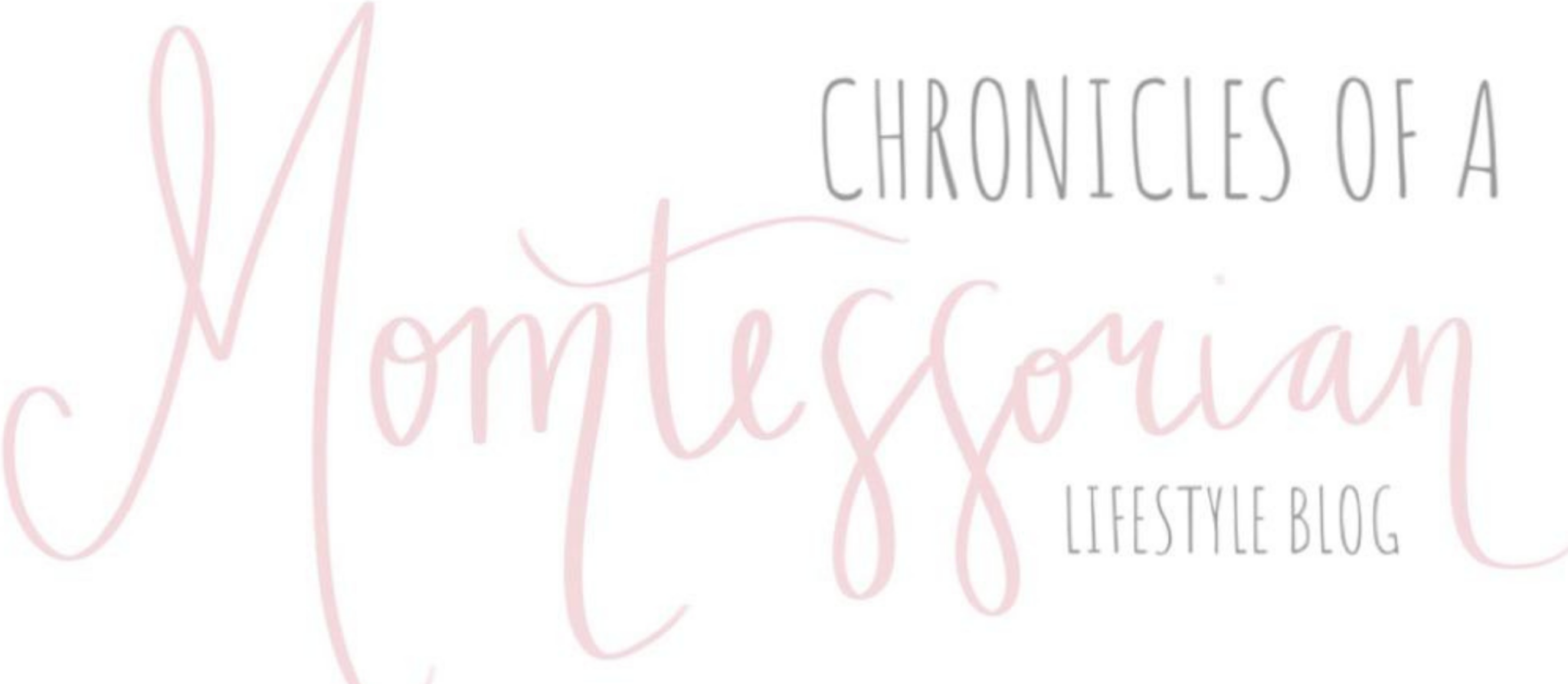

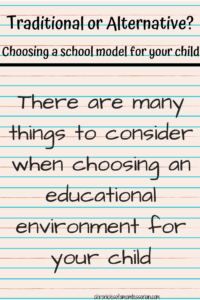


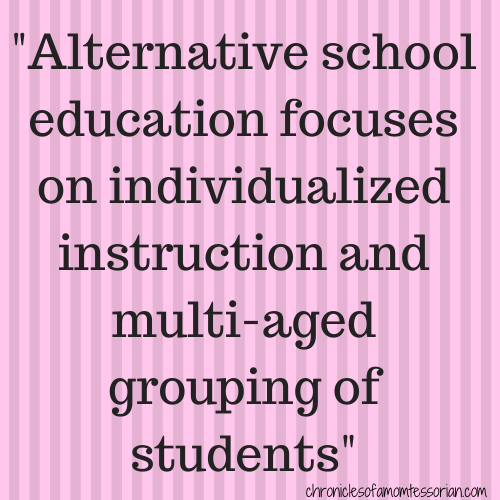
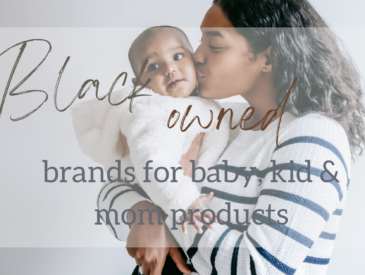
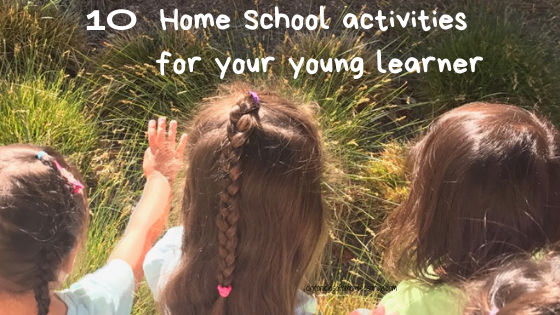
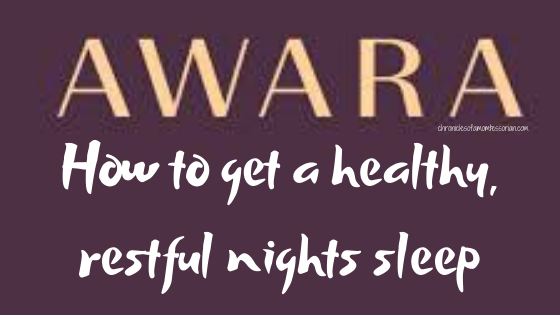
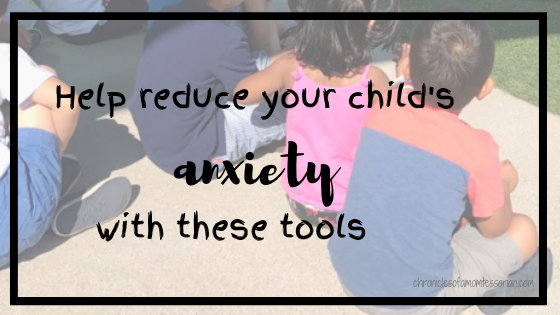
This is great information for any parent trying to decide on what type of education to provide for their children. Every child learns differently and the best way for parents to choose is to be educated! Thank you!
I think many, many of us would prefer to go the Montessori route – though finances may not get us there. I know that both my girls would benefit from a stable and structured Montessori school (not just doing it at home) – and this article is a good breakdown of why. Maybe someday.
My four kids all did well in traditional. However we are in Canada and I find the school is often a reflection of the community. Plus I have always been very involved in their schools
I don’t have kids, but this is a great topic!
I just appreciate that there are so may options out there so that we can do what we feel is best for our kids. I also love that we can change if we find that something isn’t working.
Great info! I attended public school my entire childhood, but I’ve chosen to homeschool my children. I think it’s great that we have the freedom to choose what type of schooling we feel is best for our families.
Clear, helpful comparison of the two approaches.
My kids are in elementary and we do a magnet school for them and we love it. The difference I notice between the magnet school and public school in our particular area is that the moms are more involved with the magnet program because you have to be able to drive them and pick them up (no buses) so there is a lot more interaction and opportunities with trip sand projects. But it does limit those who are able to join since there are no buses.
I don’t have kids yet, but I know we already think about their schooling. Great perspective!
I don’t have kids yet, but definitely something to think about
I never knew the difference of a charter school. Unfortunately the differences were free or expensive when I was a kid. My daughter is in public school now but I also want her to have the benefits of a less traditional school. Perhaps they have something I can enroll her into in the summer that is a little easier on the wallet.
Good comparison of traditional vs. Montessori. I have a friend who decided on the Montessori route for one of her children. And I am familiar with it because I have researched many educational routes. I went to public school, but I chose another alternative to traditional schooling which is independent homeschooling. I homeschool my five children and it is a wonderful life being together all day. I am so thankful we have the freedom in America to choose the type of education that we think is best for our children.
Great post showcasing the difference in schools.
A lot of public educators are incorporating the Montessori meth to their class. I think it’s I mordant to see what your local public school offers first before deciding to cash out to a private institution
I pulled my special needs child out of public school in 6th grade. The school system was failing him on so many levels including closing down his special needs classroom due to funding cutbacks…. Teaching him at home he has flourished and done so well….
Great info for mothers! 🙂
Great info! As a teacher I am very familiar with the traditional model and it fails so many kids.
To be honest with you, I had no idea what this type of education was all about before this post. I wish I had known when my kids could have benefited from it. Sounds like a lovely alternative to traditional schooling.
I like the idea of a Montessori education. It also makes me think of times of the past and old, one room school houses where the children learned and worked together.
Having children changes how I view education completely! This is great information!
This is perfect! As an educator myself; I find that it is so important to be able to incorporate different styles of education and different methods of teaching. The traditional model of education in the American classroom is more of an idea for most schools as they’re shifting gears and more and more teachers are focusing on the individual
So true: kids have different needs and different styles. There are so many other “alternative” school models, too. Thanks for this information!
There are so many options for parents these days. There is an even bigger variety of family situations that affect the educational choices we make for our kids.
definitely alternative. Like alternative to alternative!
Great information! This is a huge decision that parents need to focus on!
I saw this at the right time. I have 4 children and so far it has been traditional but one of my twins may be better suited for an alternative model. We’ll see how it goes.